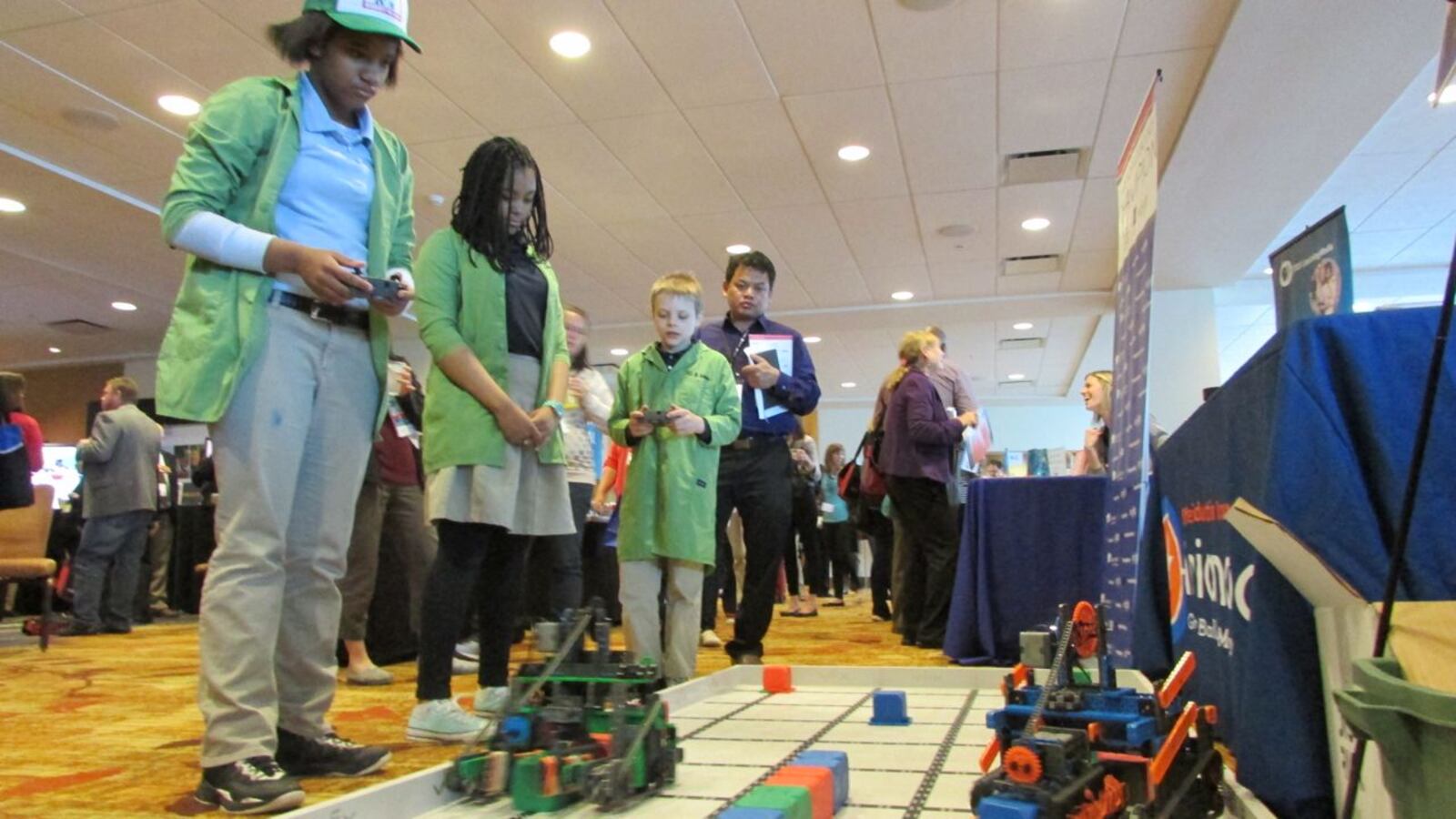Before- and after-school programs that serve nearly 45,000 Indiana children each day aren’t a funding priority in Indiana, but an influential state lawmaker said today that it’s time for that to change.
State Sen. Dennis Kruse, R-Auburn, who leads the Senate Education Committee, told more than 700 program leaders and community groups at the Indiana Afterschool Network‘s Summit on Out of School Learning that he’d be willing to sponsor a bill in the next legislative session to set aside more grant money for before- and after-school programs that he acknowledged are often overlooked.
“I don’t think it is a major issue in the legislature, but … I think it should be bigger than it is,” Kruse said. “I would say we need maybe some additional lobbying and exposure to the legislators themselves (to see) what’s happening. I buy into this totally, 100 percent.”
Kruse joined state Superintendent Glenda Ritz, Gary Mayor Karen Freeman-Wilson and Melanie Brizzi, a director at the FSSA on a panel about the importance of after-school programs in Indiana. The panel was moderated by Chalkbeat Indiana Bureau Chief Scott Elliott.
“Consider yourself lobbied,” Ritz told Kruse, as she agreed that the state should do more to bolster programs that support kids outside of the traditional school day. Currently $800,000 in state funds is available to support such programs, along with $20 million from the federal government.
But as before- and after-school programs evolve to be more strongly connected to the broad preschool-to-college education system, advocates said more funding will be needed to help families afford their services.
“We need to have well-rounded opportunities for kids during school and outside of school,” Ritz said. “I see (this) really being about equity.”
Advocates said their programs are becoming more academically enriching. Before- and after-school programs in Indiana are pushing to provide learning opportunities for kids such as with science and technology programs, literacy skills and homework support.
“One of the things that is important for us with after-school (time) is the exposure to new things, whether it is robotics, or different sports like horseback riding and polo,” Freeman-Wilson said. “After-school time is a real opportunity to expand students’ horizons and help them think about new things.”
Giving kids something to do can also protect against crime. Nearly 230,000 Indiana children are home alone after school, including children as young as in kindergarten. Research has shown the hours of between 3 and 6 p.m. are when kids are most likely to commit or be a victim of a crime.
“We always focus on peer pressure as a negative thing,” Freeman-Wilson said, “but a lot of the peer pressure our kids can benefit from is positive peer pressure.”
Brizzi said people who run before-and after-school programs should focus on measuring the impact their programs have on kids’ lives so that advocates can make the case they deserve better funding.
“We’re very busy serving the children and families,” Brizzi said. “We don’t always measure outcomes. I’d challenge you to do that … so that we can tell the story in a way that’s understood by policymakers.”


